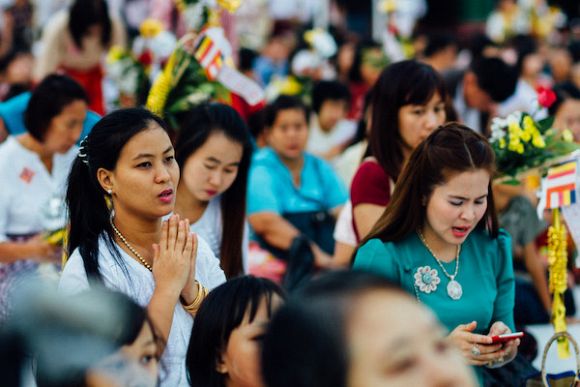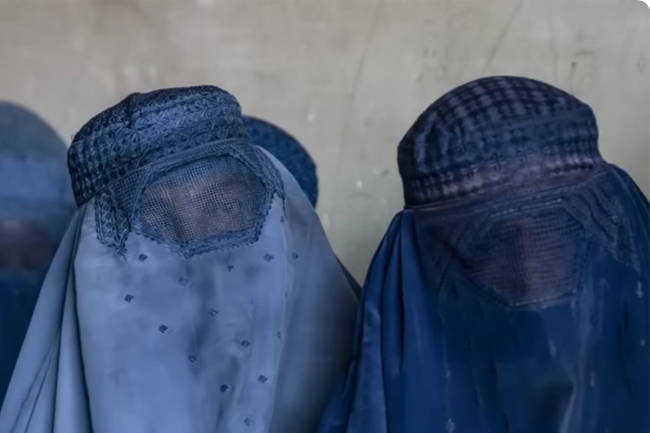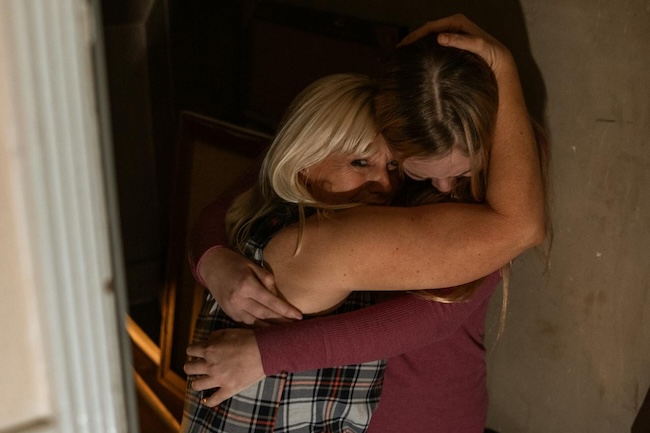There is a desperate need for women and girls in Mozambique to realise their rights — teachers should not be allowed to sexually harass young girls, writes Johanna Higgs.
*CONTENT WARNING: This article discusses sexual harassment
RITA AND I sat in a small beach café in the small town of Barra along the Mozambican coast. The view was spectacular, the ocean spread out before us and shimmered in a dizzying array of blues and greens, the white sandy beach giving the illusion of being in paradise. However, that which 15-year-old schoolgirl Rita was telling me made Barra feel anything but idyllic.
As Rita explained:
"The teachers give the girls their phone numbers and ask them to call them. They don’t want to get married, they just want to have sex with the girls and leave them."
Rita was talking about the phenomenon of "sex for grades", a practice where teachers exchange grades for sexual favours. Young girls are pressured by their male teachers to sleep with them and if they don’t, the girl will not pass a particular grade.
As much was happening at Rita'sescola secundária, as she confirmed:
"If students say no to the teachers, they’ll be in trouble with their marks. If they accept, then they’ll get better marks. It happens a lot. I don’t think it’s right. The teachers are taking advantage of children’s poverty."
Situated along the southeastern coast of Africa, Mozambique ranks 181 out of 189 countries on the United Nations Development Programme's (UNDP) Human Development Index and it is estimated that 70% of the country lives in poverty. For many young girls, this poses enormous barriers to getting educated.
According to The Borgen Project, more than 50% of girls drop out of school by the fifth grade and only an estimated 11% make it to secondary level. As a result, roughly 28% of women in Mozambique are educated and only 1% of women attend university.
Due to this lack of education, many young women feel pressured to marry early in order to attain financial stability with around 48% of women marrying by the time they are 18. This places women at greater risk of harmful cultural practices such as child marriage as well as domestic and sexual violence.
It is thought that more than half of Mozambican women have not only experienced violence in the home but believe that violence against women is justified.
The male teachers would work together and if one female student wouldn’t sleep with a teacher, the other male teachers would gang up on her and all give her bad grades.
Aside from these challenges, Mozambique is also a country steeped in corruption — corruption that has made its way into the schoolyards of children in the most erroneous and despicable way, in the form of sexual assault.
An American teacher – who preferred not to be named and had worked for two years in a secondary school in rural Mozambique – said that she first became aware of sexual harassment in her school after a male teacher came to her house to harass a student she was living with.
Said the American teacher:
I then discovered that many male teachers were changing the student’s grades and were only passing students whose families had paid the teachers or if they were girlfriends of the teachers. Intelligent students were failing and children who were not good students were passing with flying colours.
One day I walked into a classroom of a teacher and he had written how much it would cost to pass the grade on the board. They don’t even try to hide it. I saw students as young as 13 being harassed by teachers. The teachers were around 30 or 40 years old.
She added:
"The teachers would blame the students and say that they were provoking them with their clothes and would directly call girls sluts. The male teachers would work together and if one female student wouldn’t sleep with a teacher, the other male teachers would gang up on her and all give her bad grades."
Shaista de Araujo, a women’s rights activist based in the country’s capital Maputo, said that the problem of sexual abuse in schools is exacerbated by teachers blaming students for the way they are dressed.
She explained how the ministry of education had changed the uniform requirements so that girls had to wear long skirts — the implication being that girls should wear more modest clothing so as "not to provoke sexual assault".
The Mozambican Young Feminist Movement (MOVFEMME) and others responded with protests in response to the new rule, which resulted in some of the protestors being put in jail.
Araujo explained:
We said they should be focusing on the real problem which is the teachers who are not protecting the girl’s rights, not what the girls are wearing. Mozambique is a patriarchal society where girls are expected to be submissive. Women and girls are less valued by society which consequently leads to them being vulnerable to abuse. I have to believe that things can get better though — we need to find ways to get women to wake up and realise their rights.
There is, indeed, a desperate need for women and girls in Mozambique to realise their rights — rights which include young girls not being sexually harassed by their teachers while at school. It also includes punishing the men who commit these heinous acts and ensuring a zero-tolerance policy against sexual abuse.
In order to achieve this, the perception that sexual harassment is "normal" needs to change. Significant efforts also have to be made to reduce the widespread poverty and corruption that allows such horrendous abuse to take place as well as getting rid of highly misogynistic attitudes which allow men to feel entitled to harass women and girls.
Said 15-year-old schoolgirl, Rita:
"Sex is a business. I don’t think this is good."
Indeed, it is most certainly not good.
If you would like to speak to someone about sexual violence, please call the 1800 Respect hotline on 1800 737 732 or chat online. Also, you can call Lifeline on 13 11 14.
Johanna Higgs is an anthropologist and founder of Project MonMa, which advocates for women’s rights around the world.
 This work is licensed under a Creative Commons Attribution-NonCommercial-NoDerivs 3.0 Australia License
This work is licensed under a Creative Commons Attribution-NonCommercial-NoDerivs 3.0 Australia License
Support independent journalism Subscribe to IA.















